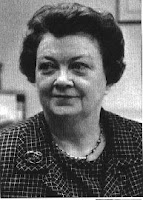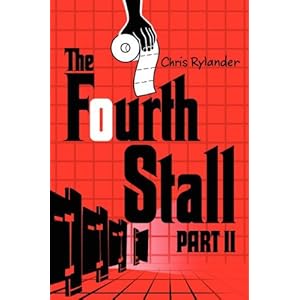My stint as a Cybils panelist turned me on to novels in verse. So I was thrilled to read Caroline Starr Rose's May B. Caroline is a fellow member of the team at Project Mayhem, and she has created a very special novel.
The Story: (from Goodreads) May is helping out on a neighbor's Kansas prairie homestead—just until Christmas, says Pa. She wants to contribute, but it's hard to be separated from her family by 15 long, unfamiliar miles. Then the unthinkable happens: May is abandoned. Trapped in a tiny snow-covered sod house, isolated from family and neighbors, May must prepare for the oncoming winter. While fighting to survive, May's memories of her struggles with reading at school come back to haunt her. But she's determined to find her way home again
Opening Lines: I won't go.
"It's for the best," Ma says,
yanking to braid my hear,
trying to make something of what's left.
Why I liked it: Mavis Elizabeth Betterly, a.k.a. May B. is a spunky heroine. Her struggles with reading, and the treatment she receives from Teacher, are heartrending. In crystalline verse, Caroline Rose paints a vivid picture of life on the frontier and its struggles. I was with May all the way as she tried to survive the elements in a sod house with only limited provisions. This novel is a testament to the human spirit.
I was very fortunate to have Caroline answer some questions. Here's our interview:
!) 1) I read in your bio that you spent part of your childhood in Saudi Arabia. How did you end up there? What life experience there did you find interesting or challenging?
My dad was with the Corps of Engineers and did construction work in Saudi. As we moved there when I was three and left when I was six, the real challenges came when I returned to the US. There was so much I didn’t know: American slang, playground games, TV shows, and the like. The first time I saw a deer-crossing sign, I asked my mom why there was a picture of a goat on the side of the road. Culturally, I was an outsider in my own country. This is an idea I’m playing with in my next verse novel.
When Tricycle closed, the books that were slated for summer and fall 2011 were left in limbo: Random House imprints had the option of picking up titles (there were roughly two dozen, I believe). For books that weren’t kept on, contracts were honored (meaning authors got paid what they had been promised), but those books had to be shopped elsewhere.
Random House kept five Tricycle titles, and fortunately, May B. was one of them (now as a part of imprint Schwartz and Wade). I went through three more rounds of edits with my new editor, and my publication date was pushed forward to January 2012.
As hard as it all was (especially the month and a half I didn’t know my book’s fate), this all benefited my book: both of my editors brought their unique insight to May B. and made her better for it.
3) May B. (a.k.a. Mavis Elizabeth Betterly) goes through a lot and shows remarkable resilience. She has dyslexia and struggles to read. Have you yourself had experience with dyslexic students?
Though May isn’t based on any one person, I will confess to a handful of kids I wish I’d done more for. It is a huge responsibility to be in charge of a child’s education, and I wasn’t always qualified, aware of, or -- honestly -- sensitive enough to uncover specific needs. That’s not the most flattering thing to admit about myself, but in creating this character and especially her teachers, it was something I was forced to examine in my own life.
4) The language in May B. is often exquisite. Did you always conceive the novel as a novel-in-verse? What particular challenges did you face writing in this style?
That’s so kind of you to say! May didn’t start as verse. The first few scenes I poked at really frustrated me: what I wanted to express and what ended up on the page were very different. I went back to my research, and in studying the first-hand accounts of frontier women, I noticed there were patterns in the ways they expressed themselves. Much of their writing was matter-of-fact and spare. I tried to mirror their voices in May’s story. What I wrote this way felt as close to the bone and as honest as I could get.
Really, I stumbled into verse and am so glad I did!
As far as challenges go, writing a verse novel is not a speedy endeavor. May B. has simultaneously been the most and least difficult book I’ve ever written: once I found May’s voice, the writing was alive and real. Getting the words out, however, took hard work.
5) You are a member of the group blog, Project Mayhem. Have you found blogging to be a help in your writing career, and if so, in what ways?
I’m not sure if blogging is a help I can measure quantitatively, though it certainly has been a great boon to my writerly life. After all those years of rejection and solitude, starting my own blog and getting instant feedback was huge. As a part of Project Mayhem, I’m able to work with others who share my same passion, cheer on their successes, and learn from their experiences.
6) We're celebrating your recent news--the sale of a picture book called OVER IN THE WETLANDS to Schwartz and Wade. What is it about, and how did the writing of it unfold?
Thank you! I’m excited to learn how picture books work and am thrilled to be with Schwartz and Wade again.
My family moved to Louisiana a year and a half after Hurricane Katrina. All the local talk was about wetland erosion and attempts at preservation. I’d never heard of this pressing ecological problem discussed nationally, and after falling in love with the culture, the community, and the gorgeous surroundings, I decided to write about this amazing slice of our country.
Wetlands serve as speed bumps during storms, are homes to a variety of unique flora and fauna, and are natural filtration systems. Due to many factors, including levees along the northern portion of the Mississippi and the building of canals, much of the Mississippi River’s rich silt is no longer deposited at the Delta and nearby barrier islands. Instead, it is washed out to sea.
Just months after writing my first draft, we endured both Hurricanes Gustav and Ike, the second of which flooded thousands of homes in the southernmost part of our region, Terrebonne Parish. And then came the oil spill. Louisiana’s wetlands were suddenly known at the national level. The story felt more timely than ever.
I hope you've enjoyed getting to know Caroline and her creation, May B. Leave a comment and you'll be entered to win my copy of May B.

 "
"


